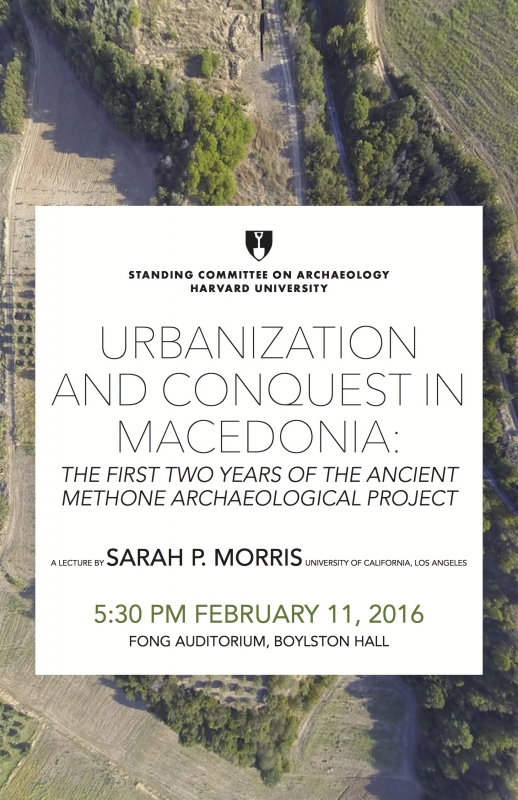Date:
Location:
Ancient Methone is a city situated on the mouth of the Thermaic Gulf in Pieria, northern Greece, with a settlement record stretching from the Final Neolithic period, ca. 4000 BCE, to 354 BCE when it was conquered and destroyed by Philip II. The city served as a pivotal junction between the rich metal and timber resources of southern Europe and the Macedonian interior on the one hand, and the Aegean maritime sphere on the other. The harbor of Methone was a key trading hub in the prehistoric and historic eras and among the most important ports of the north Aegean. Evidence for the prominence of Methone is provided in part by the ample array of workshops and production tools excavated thus far at the site, and also by some of the earliest evidence of the Greek alphabet anywhere in the Mediterranean, inscribed on pottery dating to the late 8th and early 7th centuries BCE. Merchants and settlers from throughout the Mediterranean are represented in the material culture of the city, indicating links with Mycenaean, Phoenician, Euboean, Athenian, and Macedonian societies. The 2014–2016 Methone Archaeological Project (a collaboration of the American School of Classical Studies at Athens and the 27th Ephorate of Prehistoric and Classical Antiquities) aims to enrich the understanding of these connections in northern Greece, a relatively understudied area in Aegean studies, as well as situate the ancient city within the wider Mediterranean world.
